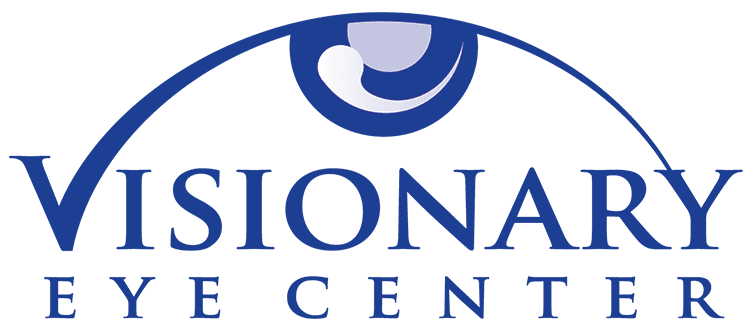SHOP DRY EYE CARE TODAY!
Use code VISIONARYEYE20 at checkout for 20% off!
As a child’s health is the number one priority to parents, surprisingly many are inattentive to the importance of eye health. Eyesight issues can impact a child’s life in every fashion of ordinary life from school to sports and socializing. Children cannot always vocalize exactly what’s wrong, and a lot of times it’s hard for them to even realize.
You may be asking yourself, “Does my child really need glasses?” Healthy eyesight is crucial to a child’s well-being, so in this blog we will explore some of the most common signs to tell if your child really needs glasses or not.
Before we get into signs of possible eye issues, the most important thing is to make sure your child goes in for frequent checkups. Oftentimes, kids are only taken in occasionally if there is nothing wrong the first time, but doctors recommend children should be seeing an eye doctor at least once a year.
Many schools perform a regular vision screening, but miss 75% of children with vision problems. The screening performed by your pediatrician using a picture chart tacked to the wall is similarly inadequate. If your child fails a school or pediatrician vision screening make sure to bring them in immediately for a comprehensive eye exam. Eye exams by an optometrist are really the only foolproof way for a true diagnosis, and it often these vision issues will continue to worsen if you don’t stay proactive about the situation.
1) Squinting
Squinting compensates for your eyes’ inability to clearly see an object by reducing misfocused light. If you notice your child has a tendency to squint while looking at far away objects (nearsightedness) or squinting while looking at close up objects (farsightedness), it may be time for a checkup.
2) Tilting of the head
If you see your child continuously tilting their head, especially if you notice they are attempting to strain their vision, it could be an attempt to increase vision clarity by changing their sight angle. This could be a sign that their eyes are misaligned or an imbalance of the eye muscles.
3) Sitting too close
It could seem like a natural child thing to do to sit too close to the TV or hold devices or books close up to their face, but it could be a sign of nearsightedness or myopia development. Nearsightedness affects your vision where one can see more clearly when the object is closer, and it is one of the most common vision problems for children around the world.

4) Struggling in school
If you notice your child is struggling in school or with school work, it could be a number of different things which makes it so much more important to stay informed about your child's performance in school. For a young child, school is very stimulating, and they are forced to adapt quickly, including their eyes. Vision problems can lead to a lack of focus or motivation for school work.
5) Headaches, migraines, nausea or eye pain
If your child is suffering from any of these symptoms it could be a number of different things, so just remember to listen to your children and continue to stay proactive. These symptoms could be a result of strain from the extra effort that your child must put forth if they are experiencing vision problems. This tension may cause frequent headaches or eye pain, or in more severe cases migraines and nausea could be present.
6) Covering one eye
Similar to tilting the head, covering one eye while reading, watching TV or any eye strain, can be an attempt to compensate for double vision. It could also be a sign of sensitivity to bright light (exotropia) or lazy eye (amblyopia).
7) Excessive eye rubbing
Eye rubbing is a pretty natural tendency, but it is important to monitor your child’s habits. If they are rubbing their eyes on a regular basis or during strenuous eye activity like reading or watching TV, it could be a sign of digital eye strain, dry eye or allergic conjunctivitis.
If you are concerned about your child’s eye health, or if you’re still asking yourself, “Does my child really need glasses?” you should immediately schedule them an appointment with an optometrist. Here at the Visionary Eye Center we are equipped to offer pediatric eye care with the best options, treatment and technology.
We have developed techniques and technology specifically designed for children where many other optometrists are not capable of seeing very young children. Feel free to contact us with any questions or concerns about your child’s vision, and don’t hesitate to schedule an appointment today!
 775.587.3892info@visionaryeyecenter.com8175 South Virginia Street Suite B-900
775.587.3892info@visionaryeyecenter.com8175 South Virginia Street Suite B-900